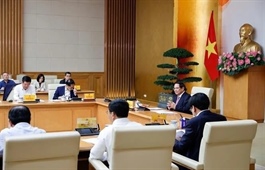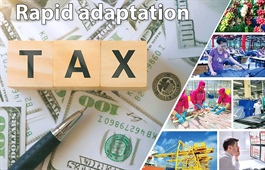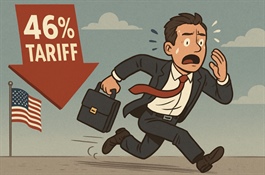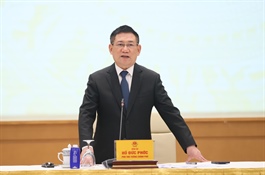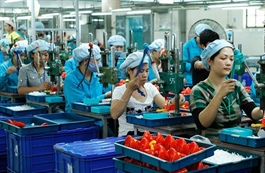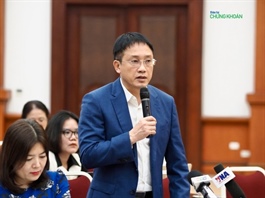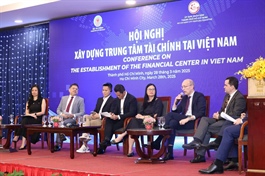Ho Chi Minh City’s financial ambitions must possess the authority of the tiger
Ho Chi Minh City’s financial ambitions must possess the authority of the tiger
A South Korean proverb wisely states: “If you aim to draw a tiger and fail, you may still get a cat. But if you aim to draw a cat and fail, you may only get a mouse.”
This proverb aptly reflects South Korea’s two-decade journey to position Seoul as a major financial hub in Northeast Asia. Although Seoul has not reached the global prominence of established centres like Singapore or Hong Kong, it has notably strengthened its domestic financial ecosystem, capital markets, and fintech industry, significantly enhancing the nation’s economic resilience.
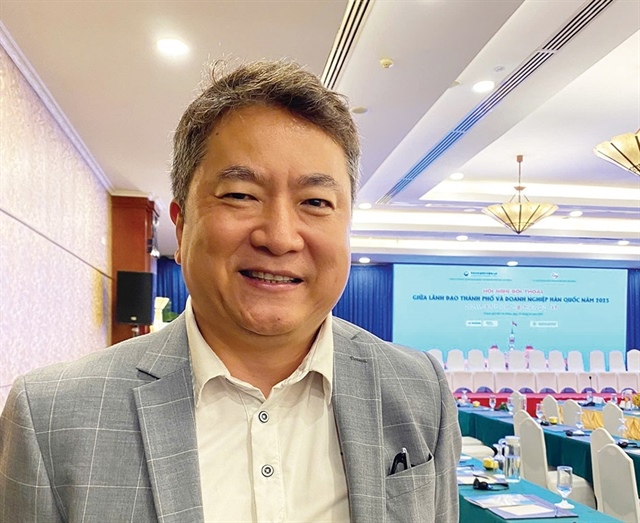
Michael J. Chin, non-executive director, Vingroup |
Ho Chi Minh City now aspires to become Southeast Asia’s next significant financial hub. By carefully studying the experiences of Seoul, along with smaller successful financial centres such as Dublin and Luxembourg, Ho Chi Minh City can strategically position itself to achieve sustainable success. Moreover, by emphasising green finance, Ho Chi Minh City can uniquely merge economic development with environmental sustainability, enhancing its appeal to global investors.
Seoul’s experience offers several valuable lessons for Ho Chi Minh City in its ambition to become a financial hub.
Firstly, strategic specialisation is crucial. South Korea initially aimed to compete broadly across various financial services. This broad approach presented challenges, as resources were spread thinly. Recognising this, Ho Chi Minh City should clearly define and cultivate its specific competitive advantages such as digital finance, IT outsourcing, administrative and back-office operations, and particularly green finance. Focusing on these specialised areas allows efficient resource allocation and fosters expertise.
Secondly, maintaining centralised governance is essential to an integrated financial ecosystem. Seoul saw the relocation of key financial institutions – including the Korea Development Bank, Korea Exchange, and National Pension Service – to regional cities. These decisions, while politically driven, impacted the coherence and potential synergy of the financial sector. Ho Chi Minh City can learn from this by ensuring key financial institutions remain centralised and decisions prioritise economic considerations.
Thirdly, a flexible regulatory environment greatly enhances attractiveness to international firms. Seoul’s stringent labour regulations and comprehensive financial rules sometimes posed challenges for foreign businesses. To attract international investment, Ho Chi Minh City can adopt streamlined licensing processes, liberalise foreign exchange regulations, and implement regulatory sandboxes designed specifically to encourage fintech innovation and simplify market entry.
Traditionally, Hong Kong and Singapore have dominated as Asia’s premier financial hubs, yet each faces distinct challenges that could benefit Ho Chi Minh City.
Hong Kong, historically stable and attractive, now contends with increasing geopolitical risks. These uncertainties have prompted many financial institutions and multinational corporations to seek alternative locations, searching for greater political stability and predictable operational environments.
Singapore, while politically stable and economically robust, faces escalating operational costs. High real estate prices, expensive office spaces, and rising general costs have become significant barriers, especially for small to medium-sized enterprises or cost-sensitive firms. This environment makes Singapore increasingly prohibitive for certain segments of the market.
Given these challenges, Ho Chi Minh City can position itself as a stable, cost-effective alternative within Southeast Asia. By providing competitive operational costs, affordable real estate, favourable regulatory conditions, and reliable infrastructure, Ho Chi Minh City can draw in firms deterred by the disadvantages of Singapore and Hong Kong.
Ho Chi Minh City can also enhance its potential by adopting strategies from smaller financial hubs such as Dublin and Luxembourg, which specialise and complement larger financial centres rather than directly competing with them.
Dublin successfully established itself as a European fintech and fund administration centre through competitive corporate taxation rates, a skilled English-speaking workforce, and agile regulatory practices. This strategic positioning allowed Dublin to complement established financial hubs like London and Frankfurt effectively.
Luxembourg similarly carved out a niche by becoming a global leader in sustainable finance and fund management. Through robust regulatory support and targeted specialisation in cross-border financial services, Luxembourg established itself as an indispensable player in international finance.
By following these examples, Ho Chi Minh City can strategically specialise in cost-effective IT outsourcing, digital compliance services, administrative support, and back-office operations, appealing to companies seeking operational efficiency and reliability.
Meanwhile, green finance represents a distinctive opportunity for Ho Chi Minh City to differentiate itself within the regional and global financial landscapes. Vietnam’s rapid growth in renewable energy infrastructure including solar, wind, hydroelectric, and electric vehicles, alongside its commitment to achieving net-zero emissions by 2050, significantly enhances its global sustainability credentials.
Ho Chi Minh City can leverage this momentum by pursuing targeted green finance initiatives, such as issuing green bonds to finance renewable energy projects, sustainable transport, and eco-friendly housing.
It can position itself as Vietnam’s hub for voluntary carbon market transactions, meeting the private sector’s rising demand for sustainability investments and carbon offsets.
The city can also collaborate internationally, particularly with partners like South Korea, on projects involving Internationally Transferred Mitigation Outcomes, accelerating renewable energy deployment and emission reductions.
Ho Chi Minh City could develop dedicated industrial zones powered entirely by renewable energy, complemented by attractive incentives and streamlined regulatory approvals to engage companies that see environmental, social, and governance criteria as a priority.
The ambition to become a major financial hub encompasses much more than international prestige – it signifies substantial economic modernisation, high-quality employment generation, and meaningful global integration for Vietnam. Realising these objectives demands a clear strategic vision, disciplined execution, and practical planning.
Aiming high by drawing this strategic tiger, even if the immediate outcome is a highly capable cat, Ho Chi Minh City will meaningfully enhance Vietnam’s economic future, creating a resilient, globally integrated, and sustainable financial environment for generations to come.
- 15:50 08/04/2025







